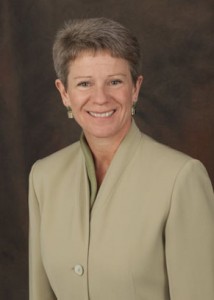Elder abuse affects seniors across all socioeconomic groups, races, cultures, mental and physical abilities and health status.

Nationally, nearly two million elders are abused or neglected each year, but only in fourteen will report the abuse.
Elder abuse can take several forms. It often occurs in multiple forms inflicted at the same time. Financial and emotional abuses are the two most common types of elder abuse, but abuse may also include physical abuse, sexual assault and neglect. A trend on the rise is interference with the elder’s medication by either withholding the medication or overmedicating the elder.
Emotional and psychological abuse can include insults and threats. It can also include treating the older person like a child and isolating him or her from their family, friends and regular activities like going to church or having lunch at the Senior Center.
Financial abuse includes fraud, forgery, forced money or property transfers, purchasing items with the elder’s money without their knowledge, blocking them from access to their money like hiding their credit card or refusing to give them their check book. Mishandling legal guardianship and conservatorships also occurs.
Who would do something this awful to a senior citizen? While the report of elderly abused by staff in nursing homes is shocking, it is less common than you would think. The majority of elder abuse takes place in the home. The victim knows their abuser because 66% are their spouses or adult children. That’s right. the majority of violence against elders is perpetrated by people who claim to love them.
According to Coleen Widell, HEAL Executive Director, “With the numbers of elders increasing dramatically as Baby Boomers age, we are beginning to see new trends emerge. We know abuse of seniors happens mostly by their very own family members. Despite this, older folks value their autonomy and independence over personal safety. They want to stay in their homes, even if that means dealing with abuse and neglect from their family. The thought or threat of being sent to a nursing home is a primary driver in why elders report abuse at a significantly reduced rate.”
Barriers that may prevent a victim from coming forward include fear of losing the only family they may have and the threat of institutionalization. In many cases, the abuser is a family member and the victim is likely to keep quiet in order to save her loved one from legal trouble.
The Nest’s response to elder abuse is education and collaboration. “In my experience, many elder abuse victims want to stay in their homes. The thought of leaving their home, even temporarily, is very frightening. This community has resources and we can connect the individual to the resources they need. If one of those places is a safe place to stay, even for just one night, we’re here,” explains Shelter Manager Carrie Calkins.
If you suspect an adult is being abused, exploited, or neglected, call the New Mexico Adult Protective Services toll free at 866-654-3219. If you have questions about elder abuse or resources in Lincoln County, the Nest Hotline is available 24/7 at (866) 378-6378.
Business Spotlight
At the Heroes with Heart event, nominees, families, friends and presenters were all able to partake in a luscious display of pastries and baked goods, in part courtesy of Cornerstone Bakery and Cafe.
We appreciate your generosity and hard work.
Thank you, Steve & Debbie Gomez and Cornerstone Bakery, for your generosity.

